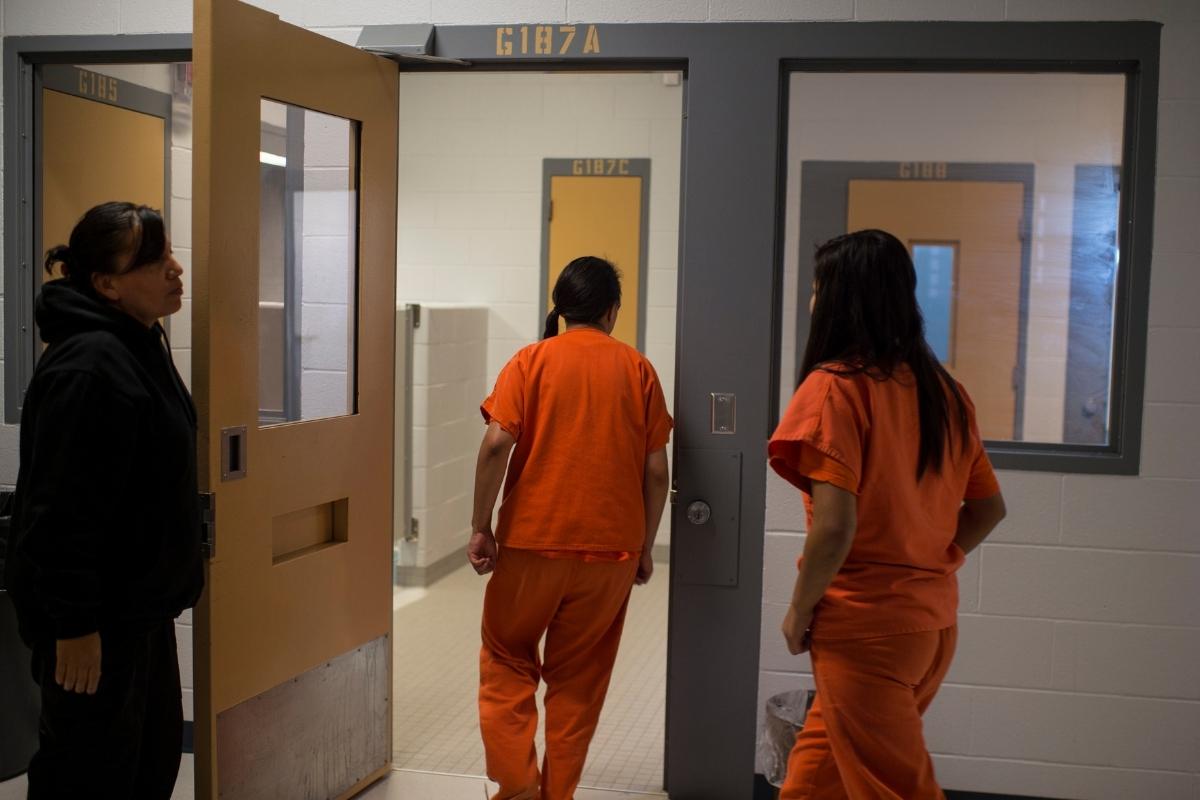There is no doubt that President Joe Biden’s executive order on reforming criminal justice in the United States is a worthy step on the long path toward repairing this broken system. Juvenile activists, however, are concerned that the dire needs of detained young people have so far been missing from this crucial conversation.
The facts are stark when it comes to incarcerated youth in the U.S. According to The State of America’s Children 2020 report from The Children’s Defense Fund, an “estimated 76,000 children are prosecuted, sentenced or incarcerated as adults annually.” Additionally, children of color are “disproportionately transferred to the adult criminal justice system, where they are tried and prosecuted as adults.”
While running for president, Biden unveiled a proposal to invest $100 million to close youth prisons and shift those funds to youth in their communities. That decision, according to Liz Ryan, president and CEO of Youth First, offers hope that his administration intends to expand the government’s criminal justice reforms.
Ryan spoke to Colorlines about the urgent needs of incarcerated youth, all of which have been exacerbated by the COVID-19 pandemic. Youth First’s main initiative is “a national campaign to end incarceration for young people in the juvenile justice system,” Ryan said. Ryan wants to “shift resources away from incarceration and into supporting youths in their homes and communities.” In this moment, she explained, it’s also very important not to lose sight of the catastrophic impact the global COVID-19 pandemic is having on the 37,000 young people currently detained or incarcerated across the country.
What are some of the biggest challenges faced by incarcerated youth today?
Any young person who is detained or incarcerated during the pandemic has had very limited contact with their families because visits have been disallowed and contact has been limited. Many of them are facing room confinement all day, which is basically solitary confinement, although the system won’t call it that. This impacts their mental health, it impacts their growth and maturity and it puts them further behind in school because they’re locked in a room all day.
Young people aren’t yet approved for a COVID-19 vaccine, which means this is potentially a lingering problem for incarcerated youth.
That’s even more reason why we should be freeing young people during this time. Some jurisdictions, local counties and states have released children, but we need to double down on getting kids out. It’s not only that they can get sick from this, but that they are not getting what they need inside these places anyway.
When Biden was running, his campaign released a fairly comprehensive platform on criminal justice reform that included juvenile justice. Are you concerned that his administration hasn’t addressed youth incarceration since he’s been in office?
Our national juvenile justice coalition actually sent recommendations to all of the presidential candidates, and Biden ended up incorporating a lot of our recommendations. So we are very hopeful that the administration will follow through on its promises. We’re hoping there will [soon be more] announcements that they will follow through with the $100 million incentive program to stop incarcerating kids and start investing in youth in their communities. We expect them to hold to that campaign promise.
Have you been given any sense of the administration’s timing on these juvenile justice reforms?
I don’t have a sense of the timing, but I think that there are two pieces here. One is that Congress will need to appropriate the money for this kind of effort. We’d want the administration to support the campaign promise that they made by working with Congress to put the money in the budget. We hope that at least a piece of that $100 million gets put in the FY22 budget.
The other piece is that we are still waiting for the administration to make appointments for the Office of Juvenile Justice and the Office of Justice Programs. We are hoping that they will appoint [strong leaders] in order to really effectuate this effort. We are going to be expecting that the Office of Juvenile Justice administrator, whenever that person gets appointed, will take up the Biden campaign pledges and make those a priority.
What price are we paying as a society when we lock up our children?
We spend the most money on strategies that produce the worst outcomes. We spend billions of dollars to lock kids up when we can spend a fraction of that to support youth at home and in their communities. And because this money is literally locked up in the institutions and they have fixed costs, whether you have five kids in the facility or 50 or 500 kids … you don’t generate any savings unless you actually close one of these places. That is something we need to be focused on, and as part of that, we need to repurpose these places because we don’t want them to then house another group of people. We don’t want them housing immigrant detainees, or adults or women or kids again. So these places should be repurposed.
The communities around these detainment facilities probably don’t want these places either, but they want good jobs. So the workers that work in these places need help in getting a different job, getting re-trained and basing that community’s economy around a different economic system so that it’s not based on caging children. It should be based on something more positive, like education or small business development. Right now we are locking up too many kids on the front end. We should be diverting kids out of the system. Once you get into this justice system, it is very hard to get out of it, and it produces life long serious and negative consequences for children.
Shani Saxon is a full-time television and film development executive who also works as a freelance writer in the criminal justice and immigration space. She lives in Montclair, New Jersey with her three children and their boss, a rescue dog named Stormy.
